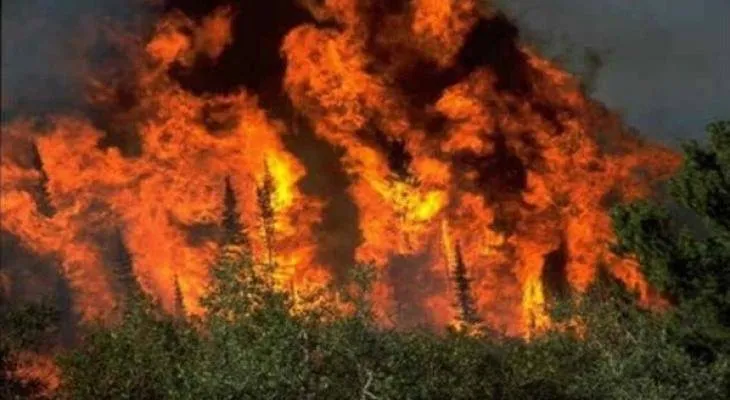Search here
Newspaper
Search here

Arab Canada News
News

Published: May 10, 2023
Fires in western Canada eased slightly on Tuesday, allowing some residents to return to their homes, while firefighters who were unable to control several hotspots and experts expressed concern about a sharp increase in temperatures expected over the weekend. So far, the fires have consumed 390,000 hectares and thousands of trees that have been charred from root to top.
Authorities lifted evacuation orders for a few villages after controlling the fires, but choking smoke now surrounds the entire province of Alberta and beyond, leading to deteriorating air quality reaching the Arctic and neighboring United States.
As of Tuesday, there were still 81 active fires after the number reached 110 two days earlier. Twenty-four of these are considered out of control, and more than 30,000 people have been evacuated over the past week.
Authorities warned that the favorable conditions for firefighters over the past two days will be short-lived, as dry weather and temperatures approaching 30 degrees Celsius are expected starting Thursday.
Alberta Premier Danielle Smith told reporters, "The fires have so far consumed 390,000 hectares. This is ten times more than the usual annual number of fires, and we are still at the beginning."
She added, "This is an exceptional and unprecedented event. I believe this is what we must prepare to face in the future."
Currently, more than 700 firefighters are deployed in this province, which declared a state of emergency on Saturday and requested federal assistance on Monday. More than a thousand firefighters from the rest of the country are expected to arrive as reinforcements.
In some areas near Edmonton, the main city in the province, residents were able to return to their villages on Tuesday.
Among these residents is Cheryl Harris (58 years old), who rents boats for river trips, standing amid the remains of the charred building, where she said, "It is difficult to see 16 years of work destroyed... I have never seen such dry weather so early in the year."
She added, "But my husband, children, and animals are safe. That is more important than anything else."
A reporter from Agence France-Presse reported that the entire village was buried under a layer of ash, while silence prevailed over the scene of destruction from ruined buildings and burned cars.
More than sixty firefighters and two helicopters are working around the city to try to contain the fire that is still out of control.
Parkland Fire Chief Brian Cornforth told Agence France-Presse, "We are exhausted. We have been working for more than a week and the fires continue to spread to new areas."
He added, "I am very worried because the weather will become dryer and hotter more and more, and these two factors are unfavorable for firefighting," explaining that on the first day the fire consumed "90 kilometers in a few hours."
The Canadian province of Alberta, one of the world's largest oil producers, has experienced a hot and dry spring that contributed to the outbreak of fires.
Canadian meteorologist Terry Lang said, "The short-term forecasts are not good. May forecasts show temperatures will be above average and precipitation will be below average."
Alberta, like the neighboring provinces of British Columbia and Saskatchewan, is currently experiencing abnormally dry conditions and severe drought in some locations, according to the latest Canadian government data.
For years, western Canada has frequently experienced extreme weather phenomena that have increased in intensity and frequency due to climate warming.
Comments